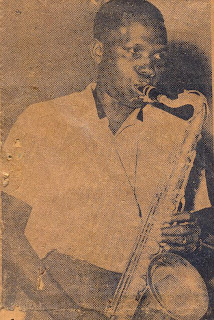Woke up very early on my first day in Arusha, looked out of the window and there was a a light drizzle outside, I remembered the first time I came to this City back in 1972, it was during the college holidays I had come to visit my friend and college mate Yusuf Mdee. He lived in Ngarenaro National Housing quarters with his beautiful and kind sisters. I loved the town from the start, it was a busy town, because of the the vibrant East African Community relations, Arusha was full of young people from all over East Africa, every weekend there would be a drinking party somewhere in town, music from Congolese bands like Orchestra Veve, Orchestra Bela Bela, orchestra Lipua Lipua, being enjoyed by youths in bellbottom trousers and high platform shoes. Disco music held in the place called 'The Cave' was like every sensible youth's place to be on Saturday night. It was like everywhere I turned, there was just happiness, youths just celebrating being alive. This was the kind of town I wanted to live in.
 |
| Me in Arusha 1973 |
The big rumba band in Arusha then, were Orchestra National and the Arusha Jazz Band. Arusha Jazz Band which had already started branding its name to 'Wanyika', the band went on to become the famous Simba Wanyika after moving to Kenya.
Just near where these bands performed was the Metropole Cinema Hall, another important entertainment point. That was where for the first time watched films like, The Godfather and Shaft's Big Score.
After completing our course at the teachers' college , we were handed forms to choose which region we would like to be posted to, my first choice was of course Arusha region, I was dreaming of the fun I was going to have there. Sure enough I got my first choice and was sent to Arusha Region, when I reported to the Regional Education Officer he told me he was going to post me to Hanang District. I was puzzled, at the time I had never heard of Hanang district, the name sounded very Chinese to me and because at the time Tanzania was in very good relation with Mao Tse-tung's China, I really believed the Hanang was a Chinese word.
In 1973, Hanang district whose capital was Babati town, was a far cry from the beautiful Arusha, and to make matters worse when I reported to the Hanang District Education Officer he posted me to a school in a remote village called Orbesh, you had to walk 12 kilometers to the nearest bus station in Dongobesh. My weekly partying dreams in Arusha evaporated.
So here I was again in Arusha in October 2023.
I am not a 'breakfast' guy, so as soon as I had dressed up I left the hotel, my first stop was the Arusha Declaration Museum. The museum is housed very near the Torch Tower (Mnara wa Mwenge). The building that houses the museum used to be the Kaloleni Social Welfare Hall, in January 1967 a historical meeting was held here and the policy of Ujamaa na Kujitegemea (Socialism and Self reliance) was drawn. Ten years later the building was converted to a political museum.
 |
| Mnara wa Mwenge |
I paid my visitors fee at the gate and entered the museum to be taken back in time. There were lots of very interesting photographs, one or two were miss captioned, but all in all a very interesting experience. The photos did take me back more than 50 years ago. I was in Std 7 when the Arusha declaration was announced, all schools all over the country marched in streets (kuunga mkono azimio) to support the declaration, youths all over the country did one thing or the other to show support to the declaration, some marched hundreds of miles, one young man, Seth Benjamin, lost his life marching in support of the Arusha Declaration.
Almost every where songs were composed, traditional songs, choirs, bands, taarab groups everyone had something to say about the declaration. Artists came up with paintings and drawings, the Makonde carvers came up with the Ujamaa carving which is still very popular. Stage plays were held in all levels of the society, there were radio plays, books, films, cartoons all in one way or the other talking about the different aspects of the Declaration. The title 'honourable' was officially disused and the title 'Ndugu' which could also be translated as comrade started being used, even the President of the country was addressed as Ndugu. Standing in the Museum was a chilling experience for me.
But then I found it strange that the museum did not have any musical work, when I know there were thousands of Arusha Declaration songs composed and recorded at the time. It was just as it had been in Tanga Museum, where there had been hundreds of famous Tanga musician, the museum seemed to have a memory loss on the musicians and their music.
I asked to see the director and offered to try to provide the music part of the museum and the Director was fully up to the idea, I am sure soon visitors to the museum will have the musically experience of the Arusha Declaration.























